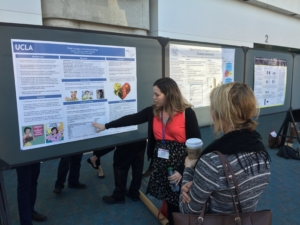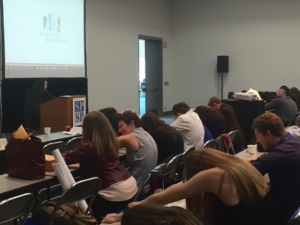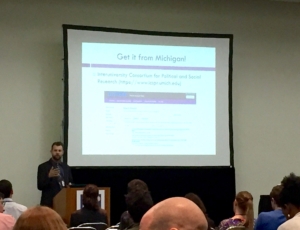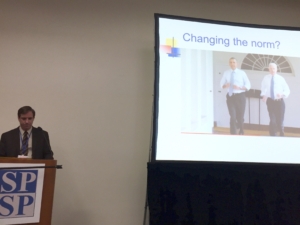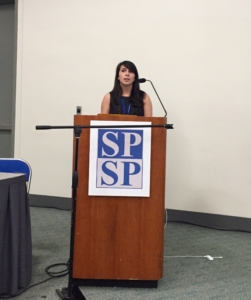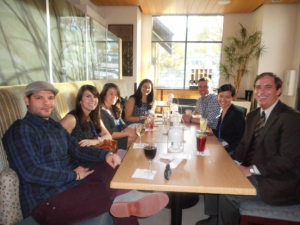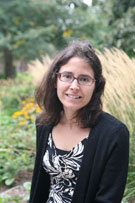Spotlight Series: Eli Puterman
We are bringing back our Collaborator Spotlight series! Our first spotlight is Dr. Eli Puterman. Dr. T met Dr. Puterman on the first day of her postdoctoral fellowship with Dr. Epel, their mutual postdoc advisor. The scientific and friendship connection was instant, and was followed by multiple papers together and Dr. Puterman later taking on the role of bridesman in Dr. T’s wedding!

1. What is the overall topic/theme that your research addresses?
My research focuses on the effects of long-term physical activity engagement and an acute bout of exercise on psychobiological and immune cellular processes that underlie disease pathogenesis in individuals with chronic distress. I’m currently pivoting to developing and evaluating movement-based programs for children and adults who are underserved, understudied, and marginalized.
2. Tell us about an exciting project you are working on right now.
I am designing a pilot and feasibility study to test the effects of doing aerobic dance for 3 months on psychosocial well being and cellular markers of health in women living with HIV.
3. What is your favorite paper you have ever written?
My favourite (favourite has a ‘U’ in Canada, Americans spell everything wrong) paper is currently under review so I cannot talk about it. My second favourite paper is, “Lifespan adversity and later adulthood telomere length in the nationally representative U.S. Health and Retirement Study” published in 2016 in the Proceedings of the National Academy of Science. We demonstrated that lifespan adversity, especially psychosocial adversity during childhood, accumulate to predict shorter telomeres in later adulthood. I had a really great time writing that paper because the collaboration with demographers and epidemiologists was truly inspiring.
4. Is there a particular finding/paper/researcher that really inspired your line of research?
I went to the American Psychological Association annual conference in 2007, held in San Francisco. At the conference, UCSF’s Dr. Elissa Epel introduced UCSF’s Dr. Nancy Adler for a talk on social determinants of health. In that talk, Dr. Adler spoke about the role of subjective social status and lifespan adversity on health, and also focused on Dr. Epel’s primary work on stress and telomeres. I knew at that moment that I needed to complete a postdoctoral fellowship in San Francisco in their group, not just because their science was topnotch, but because their vision for social justice was inspiring.
5. Since we are all foodies here, what is your favorite comfort food?
You can describe me as a functional eater… I eat to stay alive and have never been a foodie. But if I HAD to state my favourite food, I think it would be burritos. I love Mexican food more than anything. So yummy and spicy!


